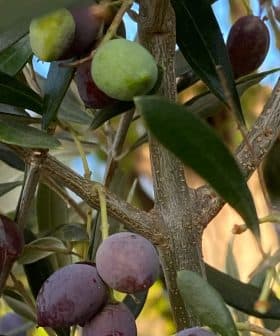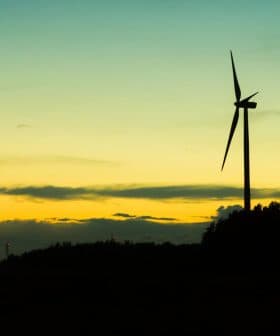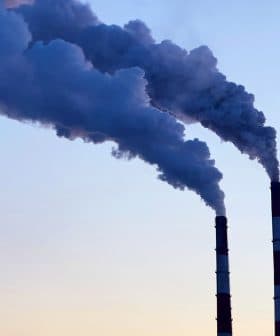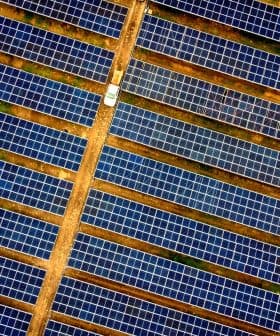The Past Four Years Were the Warmest on Record
The twenty-fifth edition of the WMO's annual climate report warns that climate change is set to continue and the Earth is running out of time to meet goals set in the Paris Climate Accords.
The World Meteorological Organization’s latest report warns that the impacts of climate change are accelerating, with record greenhouse gas levels causing global temperatures to rise. The report reveals that the past four years have experienced the warmest temperatures on record, with high ocean temperatures, rising sea levels, and extreme weather events impacting millions of people worldwide.
The World Meteorological Organization’s (WMO) latest report reveals that the impacts of climate change are accelerating.
In the report, published on March 28, the WMO’s warns that the “physical signs and socio-economic impacts of climate change are accelerating” and that record greenhouse gas levels are causing global temperatures to shoot up to alarming levels.
(The) global temperature has risen to close to 1 degree Celsius above the pre-industrial period. The time remaining to achieve commitments under the Paris agreement is quickly running out.
Figures in the twenty-fifth edition of the annual climate report illustrate that in the past four years, the globe has experienced the warmest temperatures on record, high ocean temperatures and a record rise in sea levels. It also warns that the global warming trend is set to continue.
See Also:Climate Change News“The data released in this report give cause for great concern,” United Nations Secretary-General António Guterres wrote. “The past four years were the warmest on record.”
Some of the key facts outlined in the report include:
- 2015 to 2018 were the four warmest years on record with 2016 and 2017 the warmest of the four.
- The average world temperature is 1.8 degrees Fahrenheit (1 degree Celsius) above pre-industrial levels.
- Ocean temperatures have reached record levels.
- Sea levels continue to rise and the Arctic and Antarctic ice caps are melting.
- Carbon dioxide levels also continue to rise.
- There was an above-average number of tropical storms in 2018.
- In the past year, extreme weather events impacted 62 million people worldwide. Some of these included Hurricane Florence and Hurricane Michael in the United States; Super Typhoon Mangkhut in the Philippines; heatwaves and wildfires in the U.S., Europe and Japan; and heavy rainfall and flooding in the South Indian state of Kerala.
In the foreword to the report, Petteri Taalas, the WMO’s secretary-general warns that “[the] global temperature has risen to close to 1 degree Celsius above the pre-industrial period. The time remaining to achieve commitments under the Paris agreement is quickly running out.”
Animation showing Arctic sea ice from March 5 to Sept. 15, 2020 with the 30-year average minimum shown in yellow. Video by Trent L. Schindler/NASA’s Scientific Visualization Studio
The report also cautions that these extreme climatic patterns have a negative effect on agriculture and pose a real threat to food security. Following gains made in ending hunger and reversing malnutrition, the number of undernourished people increased in 2017 to 821 million due to drought situations brought on by the El Niño phenomenon in 2015 and 2016, and extreme weather events.
It also points out that people dependent on agriculture as a livelihood and those living in countries prone to drought and temperature variability are especially vulnerable.
A cold outbreak in the winter of 2018 in Europe caused abnormal snowfalls in the southern Mediterranean region, and specifically in the south of France and southern Italy. The same region experienced heavy rainfall, high winds and flooding in late October brought by an intense low-pressure system in the Mediterranean Sea, with Italy suffering the worst damage.
Extreme weather patterns in 2018 have been blamed for the poor harvest experienced by Greek producers, a record-low olive oil yield in Italy and a dismal harvest in California.
In a recent survey of farmers conducted by Olive Oil Times, there was a consensus that the mounting climatic extremes would call for vigilance.
“These data confirm the urgency of climate action,” Guterres said. “There is no longer any time for delay.”









